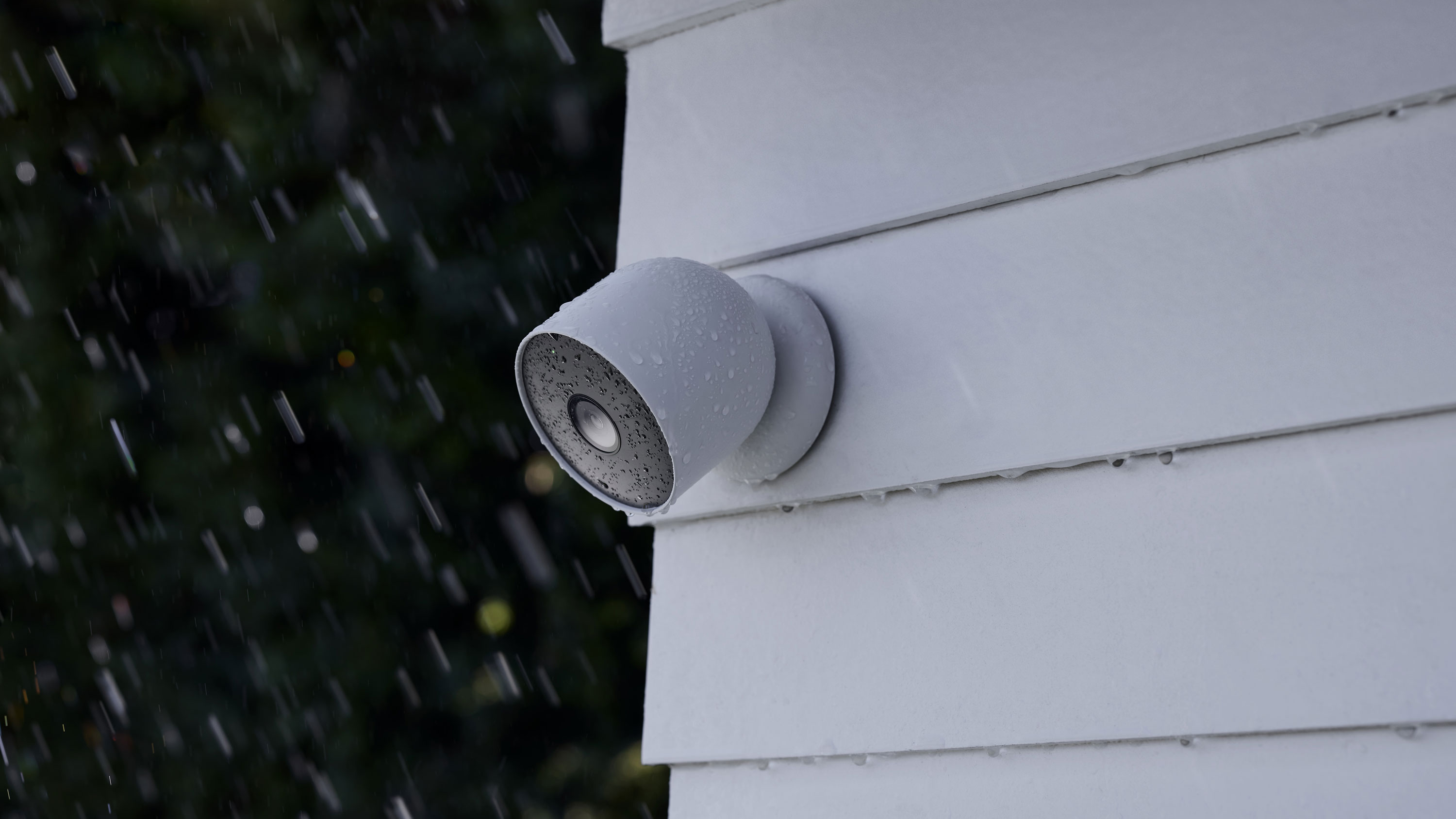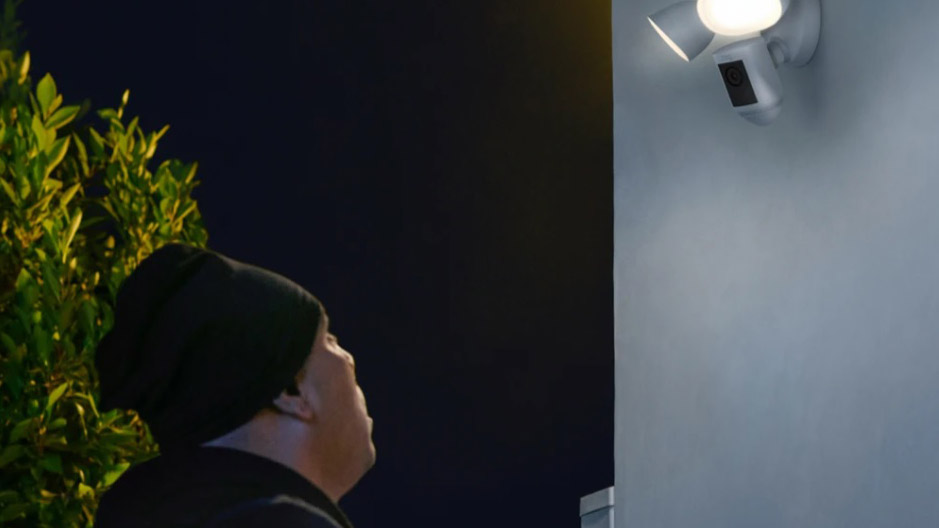CCTV vs smart home security cameras: What’s the difference and which is best?
Here’s how the two types of surveillance camera systems compare

Sign up for breaking news, reviews, opinion, top tech deals, and more.
You are now subscribed
Your newsletter sign-up was successful
When it comes to protecting your property with cameras, there are two distinct routes to take. The first and more conventional of the two is the traditional CCTV system, where a set of cameras record footage to a central storage unit, ready to be viewed on a dedicated monitor.
The second is one of the best home security cameras, which stores its footage either in the cloud or locally or a micro SD card or built-in memory, so it can be viewed remotely via a web interface or smartphone app.
There is a degree of overlap between these two approaches, with CCTV systems from companies like Swann and Reolink gaining some of the smart features offered by home security cameras from tech firms like Ring and Nest.
So which one should you choose? It really depends on what you’re looking for in home security as to which one of these styles of security camera you choose. Do you want a system that once installed can be left to its own devices, safe in the knowledge that should anything happen there will be a record you can instantly access.
However, do you want a more affordable system that only records when motion is detected and swaps cables for a wireless internet connection?
Read on to discover how CCTV and home security camera systems differ, or check out the best prices right now for home security cameras:
How does CCTV differ from a smart home security camera?
First, the traditional CCTV system. The clue here is in the name – closed circuit television – as footage is captured by cameras that are usually connected by long cables to a central recorder. Footage can then be viewed on a monitor, or your television, that is also connected to the recorder. It’s a closed-loop system that, traditionally at least, doesn’t have a connection to the internet.
With the arrival of smart home security camera systems from companies like Google-owned Nest and Amazon-owned Ring, CCTV manufacturers have begun adding extra features, including smartphone app support, motion notifications and more. These features are usually included with the initial cost of the system, not offered as part of a monthly subscription service, as is often the case with smart security cameras.
Sign up for breaking news, reviews, opinion, top tech deals, and more.
The benefits of a CCTV system lie in its simplicity and reliability. Wired connections between the cameras and recorder ensure footage is captured without interference or the risk of a wireless connection failing, or a camera battery running out. These cameras tend to be used outside, so are water resistant and designed to survive being exposed to the elements.
CCTV systems tend to record everything, or at least they include the option to do so. This means the amount of footage recorded is limited only by the size of the hard drive the cameras record to, and a complete timeline of footage can be viewed, instead of just motion-triggered snippets, as is the case with most smart home security cameras. Some systems from firms like Sansco, Annke and Swann have motion detection, which then alerts you via email or app notification.
Almost all CCTV systems come with infrared-powered night vision. Some smart home cameras miss out on this, or lack the range of a CCTV system (that is, how far into the distance the night vision can see), but it’s a feature that is becoming increasingly common across the board.
By recording to a central unit with an integrated hard drive, a CCTV system is a way to record footage locally. Instead of being uploaded to the cloud or streamed to a smartphone, footage is stored on a drive that is located on-site. This removes the middleman and issues that could arise from the cloud storage provider going out of business, suffering an outage, or being the target of a cyberattack.
On the other hand, recording footage locally also means an online backup is not available should the original be lost or damaged. If the recorder is lost to a fire or flood, then so too is the footage held on it's hard drive. Another downside for CCTV systems is how they are limited to the size of their own hard drive, whereas many smart home security camera companies offer unlimited online storage as part of a monthly subscription.
A pro and con of CCTV systems is how the cameras are installed. Usually intended to be fitted outside, the cameras can get a great view, mounted high up on an external wall. But fitting them and their wired connections requires far more effort than many smart, wireless and web-connected cameras. Some wireless CCTV cameras are available, but are still in the minority for now.
PS: Checkout our list of the best DVR for CCTV
- How to use home security camera and will it replace a video doorbell?
- Do home security cameras record all time
- We ask a former burglar: do smart security cameras really deter crime?

What sets home security cameras apart from CCTV?
Now for smart home security cameras. Instead of operating on a closed circuit, these upload footage to the cloud storage services of their manufacturer. From there, the footage can be streamed or downloaded via a smartphone app or web interface. This means there is no need to manage the recording of footage yourself, as is the case with CCTV, and lets customers view recordings whenever they like, from wherever they are. It also means the camera’s feed can be viewed live, via the app from anywhere.
These cameras are offered as both wired and wireless devices, with the latter using rechargeable batteries. This can be really useful for installation, as no cables are needed at all, but means the owner needs to keep an eye on battery life, and potentially leave the camera switched off while the battery is charged. Some home security cameras can also record footage to a microSD card, instead of uploading video to the cloud.
Artificial intelligence is something many home security cameras come with. This enables them to identify people, pets, cars, and packages, helping to notify you only when something unusual is happening, rather than when next door’s cat has strolled across the lawn again. Some models can even recognize your friends and family, with Apple’s HomeKit system using the tagged faces in your iPhone Photos library to inform Siri, who then tells you who has been spotted at the door, and Google’s Nest range of camera employing facial recognition and alerting you through the app if a stranger or a friend or family has been spotted in the camera’s field of view. .
Another key feature that sets most home security cameras apart from CCTV systems is two-way audio, where the camera has a microphone and a speaker to allow a conversation between someone recorded by the camera, and the other viewing live through a smartphone app. This can be useful for telling a delivery driver where to leave a package, or for scaring off a potential intruder by telling them they are being recorded.
Unlike CCTV, smart security cameras are also designed to work inside the home. Brands like Nest, Ring, and Arlo all offer cameras suited for indoor use; they lack weatherproofing and are powered by USB, but are small, more affordable, simple to use, and often pack a range of AI-powered smart features. They can be used as a regular security camera, trained on the front door and ready to record a burglar, or can sit on a table, ready to stream live footage of your dog while you’re at work or act as a baby monitor.
This flexibility sets home security cameras apart from a traditional CCTV system. While the former can be used a lot like CCTV, and the latter now features app integration and even Alexa support in some cases, smart security cameras have more use cases – like dog or baby monitors, and video doorbells – than CCTV.
Verdict
Both CCTV and home security cameras can keep an eye on your home when you’re not around and offer a record of what’s happened, so if you do need to review an incident, the footage will be easily available. If you’re looking for a simple system that records all the time and offers local footage that doesn’t rely on the internet, a CCTV system is the best option.
Meanwhile, home security cameras are the more affordable option and while most don’t record all the time, they can be used inside or outdoors are simple to fit, without requiring a professional.
- Check out the best cheap home security camera deals

Alistair Charlton is based in London and has worked as a freelance technology and automotive journalist for over a decade. A lifelong tech enthusiast, Alistair has written extensively about dash cams and robotic vacuum cleaners for TechRadar, among other products. As well as TechRadar, he also writes for Wired, T3, Forbes, The Independent, Digital Camera World and Grand Designs Magazine, among others.